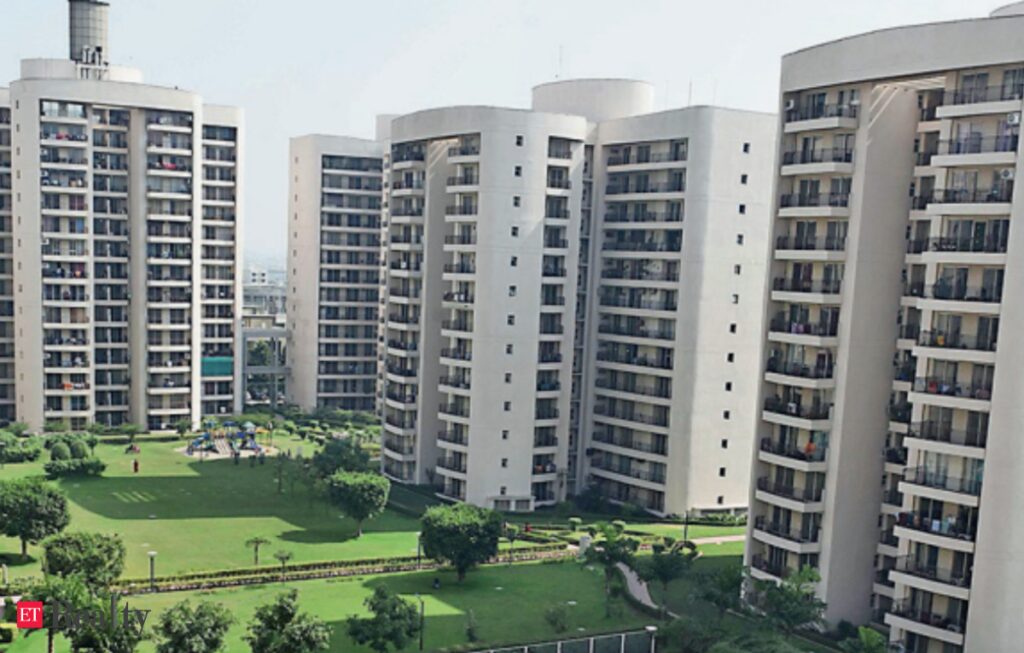-
Table of Contents
Navigating Residential Property Development: A Comprehensive Guide
Residential property development can be a lucrative and rewarding venture for those who are willing to put in the time, effort, and resources. However, it is also a complex and multifaceted process that requires careful planning, research, and execution. In this comprehensive guide, we will explore the key steps involved in residential property development, from finding the right location to securing financing and managing the construction process. Whether you are a seasoned developer or a novice looking to enter the industry, this guide will provide valuable insights and practical tips to help you navigate the world of residential property development.
Finding the Right Location
The first and arguably most crucial step in residential property development is finding the right location. The location of a development project can significantly impact its success and profitability. Here are some factors to consider when evaluating potential locations:
- Demographics: Research the demographics of the area to understand the target market for your development. Consider factors such as age, income levels, and lifestyle preferences.
- Market Demand: Analyze the current and projected market demand for residential properties in the area. Look at factors such as population growth, employment opportunities, and housing affordability.
- Infrastructure: Assess the existing infrastructure in the area, including transportation networks, schools, healthcare facilities, and shopping centers. A well-connected and amenity-rich location is likely to attract more buyers or tenants.
- Competition: Evaluate the level of competition in the area. Are there already many similar developments? If so, consider whether there is room for another project and how you can differentiate your offering.
By carefully considering these factors, you can identify locations that offer the best potential for a successful residential property development.
Securing Financing
Once you have identified a suitable location, the next step is to secure financing for your residential property development project. Property development can be capital-intensive, and obtaining the necessary funds is often a significant challenge. Here are some financing options to consider:
- Traditional Bank Loans: Approach banks and financial institutions to explore the possibility of obtaining a loan for your project. Be prepared to provide a detailed business plan, financial projections, and collateral.
- Private Investors: Seek out private investors who may be interested in funding your project in exchange for a share of the profits. This option can be particularly attractive if you have a strong track record or a unique value proposition.
- Crowdfunding: Consider crowdfunding platforms that specialize in real estate development. These platforms allow you to raise funds from a large number of individual investors who contribute smaller amounts.
- Joint Ventures: Explore the possibility of partnering with an established developer or investor who can provide the necessary financing and expertise. This option can be beneficial for both parties, as it allows for risk-sharing and knowledge exchange.
It is essential to carefully evaluate the terms and conditions of each financing option and choose the one that best suits your needs and objectives. Additionally, ensure that you have a robust financial plan in place to demonstrate the viability and profitability of your project to potential lenders or investors.
Obtaining Permits and Approvals
Before you can start construction on your residential property development, you will need to obtain the necessary permits and approvals from the relevant authorities. The specific requirements may vary depending on the location and nature of your project, but here are some common permits and approvals you may need:
- Planning Permission: This is typically the first permit you will need to obtain. It ensures that your development complies with local zoning regulations and is in line with the overall development plan for the area.
- Building Permits: These permits are required to commence construction and ensure that your project meets the necessary safety and structural standards.
- Environmental Approvals: If your development has the potential to impact the environment, you may need to obtain environmental approvals. This may involve conducting environmental impact assessments and implementing mitigation measures.
- Utility Connections: Arrange for the necessary utility connections, such as water, electricity, and sewage, to be installed at your development site. This may require obtaining permits from the relevant utility providers.
It is crucial to engage with the local authorities early in the planning process to understand the specific requirements and timelines for obtaining permits and approvals. Delays in this stage can significantly impact the overall timeline and budget of your project.
Managing the Construction Process
Once you have obtained the necessary permits and approvals, it is time to start the construction process. Effective project management is essential to ensure that your residential property development is completed on time, within budget, and to the desired quality standards. Here are some key considerations for managing the construction process:
- Engage a Professional Team: Assemble a team of experienced professionals, including architects, engineers, contractors, and project managers. Choose individuals or firms with a proven track record in residential property development.
- Develop a Detailed Construction Plan: Work with your team to develop a comprehensive construction plan that outlines the timeline, budget, and key milestones for the project. Regularly review and update the plan as the project progresses.
- Monitor Progress and Quality: Regularly visit the construction site to monitor progress and ensure that the work is being carried out to the desired quality standards. Address any issues or delays promptly to minimize the impact on the overall project timeline.
- Communicate Effectively: Maintain open and transparent communication with your team, contractors, and suppliers. Regularly update all stakeholders on the progress of the project and address any concerns or questions promptly.
- Manage Costs and Budget: Implement robust cost control measures to ensure that the project stays within budget. Regularly review and track expenses, and make adjustments as necessary.
By effectively managing the construction process, you can minimize delays, cost overruns, and quality issues, ultimately maximizing the success of your residential property development.
Marketing and Selling the Development
Once the construction is complete, the final step in residential property development is marketing and selling the developed units. Effective marketing is crucial to attract potential buyers or tenants and maximize the return on your investment. Here are some strategies to consider:
- Develop a Strong Brand: Create a compelling brand identity for your development that resonates with your target market. This includes designing a visually appealing logo, website, and marketing materials.
- Utilize Online and Offline Channels: Leverage a mix of online and offline marketing channels to reach a wider audience. This may include listing the development on real estate websites, using social media platforms, and hosting open houses or property exhibitions.
- Highlight Unique Selling Points: Identify and highlight the unique selling points of your development, such as its location, amenities, or design features.









